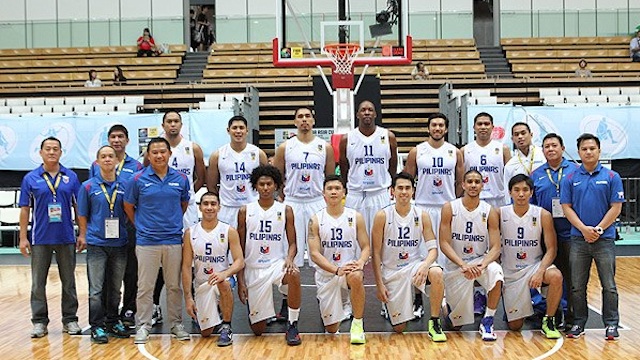Headline
Philippines’ encouraging showing at basketball worlds reflects sport on the move
MANILA, Philippines—The Philippines may have beaten only one of its five opponents and been eliminated at the group stage of the Basketball World Cup but they have won over a country that can sense the rapid progress of the sport in the nation.
The Filipinos defeated Senegal 81-79 in overtime Thursday in their last game in Group B to end the tournament on a high, though just qualifying for the trip to Spain was satisfying enough.
“Being there is a mini victory for the country already,” former captain Chris Tiu told The Associated Press. “It means that we belong to the elite of Asian basketball.”
One of the most successful coaches in Philippine professional basketball, American Tim Cone, shared Tiu’s sentiments.
“What a moment,” he said in commentary on local television as the Filipinos geared for the opening battle last Saturday against Croatia. “No matter what happens today, just the fact that we are part of this is a phenomenal thing.”
It has been 36 years since the country played in the world championship, in 1978,; 40 years sinice it last won a game; and 60 years since winning a medal.
The breakthrough win over Senegal was no less than the ‘Gilas Pilipinas’ deserved after a succession of narrow defeats. In the opening game, the forced an extra period against Croatia, having tied 71-71 and lost 81-78, with some satisfaction that they had given one of Europe’s top national teams a genuine scare.
“What a message we sent today.
In a word, awesome! I mean, wow!” Cone said after watching the game in Manila.
That was followed by an 82-70 loss to Greece, and 85-81 defeat by Argentina and then a 77-73 reverse against Puerto Rico.
Tiu said the undersized team had played with “the biggest heart” and its performance “shocked the world by coming too close to juggernauts like Croatia, Greece, Argentina, Puerto Rico.”
“That to me is our victory,” he said.
The Filipino passion for the sport can be seen in the ubiquitous presence of basketball courts in both poor and wealthy communities—some built by local residents and others donated by politicians trying to leverage the sport’s popularity into votes. Neighborhoods that don’t have real courts would block off the best paved roads where they hold village basketball tournaments.
One of the country’s biggest lovers of the sport is boxing icon Manny Pacquiao, who plays basketball with his entourage during breaks in his training. The country’s wealthiest athlete also has joined the professional league as playing coach of the newly-formed KIA Sorentos. His team will see action for the first time in October.
Basketball, along with baseball, was introduced by the Americans a century ago when they arrived to colonize the country as the Spanish rulers were close to total defeat by Filipino revolutionaries.
Baseball was more popular in the early days but basketball slowly eased it out with more followers and players after the Philippines won Asian competitions in the early 50s and early 60s.
Sports analyst Eddie Alinea said that basketball is now more popular than other sports because it is the cheapest game and can be played virtually anywhere.
“Even if you are just wearing slippers, you can play,” he said. “You only need a pail or a basket that you can nail to a wall and ask for a donation for a ball.” Unlike baseball or football, it doesn’t need wide open fields, which are at a premium in a country with a small land mass and burgeoning population.
Basketball, like boxing, has become the road to riches for aspiring college players seeking to be drafted into the professional league where “people are earning in the millions” of pesos (tens of thousands of dollars) Alinea said.
Professional teams recruit NBA players to boost their lineups. Pacquiao’s new team is eyeing NBA All Star Metta World Peace, the former Ron Artest who had stints with the Chicago Bulls, Los Angeles Lakers and the New York Knicks. World Peace currently plays for the Sichuan Blue Whales in the Chinese Basketball Association.
Tiu said he is against drafting imports, especially for college teams. He said it would take away opportunities for local players and may deprive “our big men” who play centre or power forward from reaching their “full potential.”
“When schools seriously recruit foreigners and give them very attractive packages, you tend to question the underlying values of the game and the school as well. What’s more important? Academics or basketball? Is it always about winning? Or is it about developing student-athletes?” said the former college basketball star.
Imports in the pro league can take away livelihood opportunities for Filipinos, he said, but the Philippine Basketball Association has done “a decent job in balancing this” by providing an all-Filipino conference and requiring only one import per team in the other conferences.






















